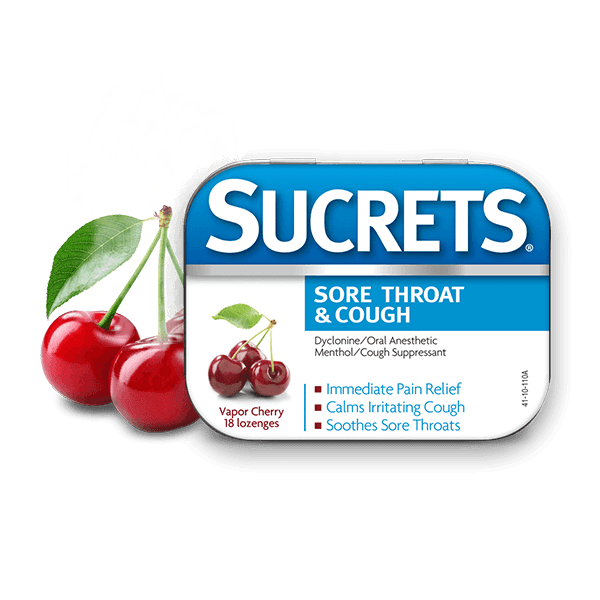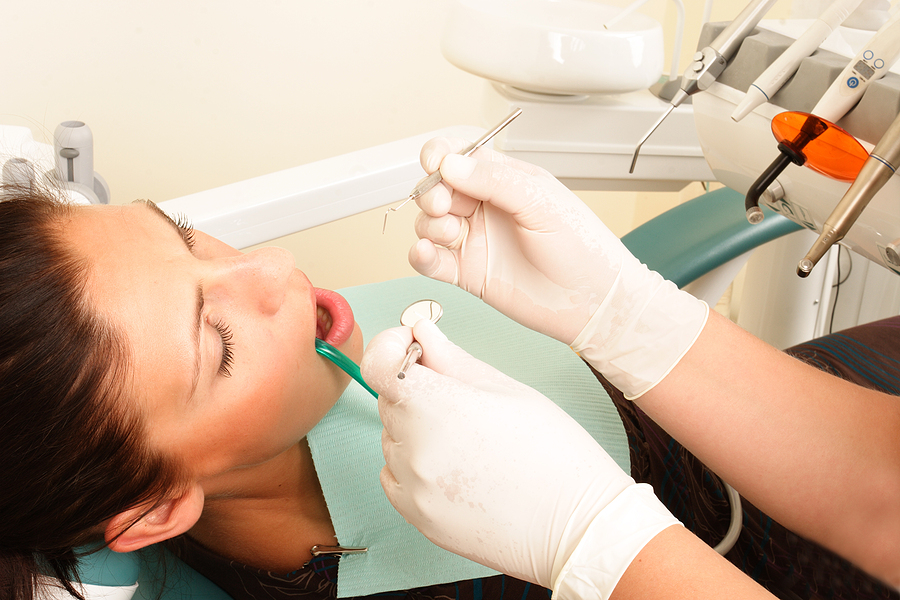Patient discomfort in the dental chair is a main reason for avoidance of dental care. How do you get a patient who is uncomfortable with even opening their mouth at the dentist to relax? There are many techniques that exist for easing a patient’s anxiety including psychological techniques. However many dentists and hygienists find that the fastest way to alleviate a patient’s fears is to simply anesthetize them. One anesthetic that requires no needles and is easy to use is dyclonine oral rinse. This anesthetic rinse has multiple uses besides pre-procedure numbing including providing relief from canker sores.
What is Dyclonine?
Dyclonine is a versatile anesthetic that may be used by numerous specialties including dentistry, otolaryngology, and gynecology. In dentistry it can be used to numb the mouth and throat prior to a procedure or to prevent gagging. It has a similar use for ENTs who use it to numb the throat prior to endoscopic procedures. Dyclonine is an “unclassified” compound – it is not an amide or ester anesthetic but a unique anesthetic form. Specifically, dyclonine is chemically designated as 4’-butoxy-3-piperidinopropiophenone HCl – a white crystalline powder that is sparingly soluble in water.

While dyclonine is effective and has few side effects, it is usually not the first choice for numbing due to the popularity and widespread availability of lidocaine and benzocaine. There are few versions of dyclonine that are commercially available. Some dental suppliers offer a 0.5% dyclonine rinse, but besides that there are not many alternatives. The over-the-counter product Sucrets contains dyclonine and is used for treating sore throat. However this product is not sufficient to numb the mouth or throat prior to an in-office procedure.
How Does It Work?
Dyclonine blocks nerve impulses by decreasing the neuronal membrane’s permeability to sodium ions. This effectively prevents the pain signal from being sent from the application site. When applied topically, dyclonine provides surface anesthesia to mucous membranes such as the mouth, pharynx, larynx, trachea, and esophagus. Within a few minutes it will start to work and the patient will experience anesthesia for about a half an hour. Dyclonine is used in dentistry as an oral rinse so it is swished around in the mouth and gargled with then spit out. The smallest amount necessary to produce numbing should be used to reduce the chance of adverse effects.
Uses for Dyclonine Rinse in Dentistry
In dentistry, dyclonine has a variety of uses and has been used in the profession for many years. Some hygienists use it prior to scaling and root planing instead of using a topical gel or injected anesthetic. Dyclonine may be used for pre-injection numbing to alleviate the anxiety and discomfort around an injection. It may be used to prevent the gag reflex when taking x-rays and impressions or when performing a procedure in certain areas of the mouth. Especially when it comes to anesthetizing the back of the mouth, other types of anesthetic forms are not ideal. A gel or ointment has the tendency to migrate beyond the application site, which means the patient is likely to swallow a significant portion if it is applied near the throat. Dyclonine is rinsed and spit out which minimizes the risk of swallowing. The anesthetic effects typically do not last more than an hour, which makes sure the patient is not numb for the rest of the day after leaving the office.
Dyclonine is an overall useful anesthetic for daily use in any dental practice. It can be used for everything from light cleanings and x-rays to pre-injection numbing. When hygienists are debating whether to use a local anesthetic injection for deep cleaning, they reach for the dyclonine rinse to make the patient’s experience more comfortable.
For other applications outside of the mouth, dyclonine is often applied to a cotton ball or sponge that is soaked with the solution. This method of administration may be used in proctology or gynecology. It is important to make sure the formulation you have compounded is made for the intended application site to prevent adverse effects from any excipients used.
Safety and Adverse Effects
The safety of dyclonine has not been established in patients under 2 years old. In addition it is not known whether this anesthetic is excreted in the breast milk of nursing mothers. Long term studies on the use of dyclonine have not been conducted although typically the formulation is only used in small amounts during occasional office visits.
Topical anesthetics that anesthetize the entire mouth and throat like dyclonine may result in difficulty swallowing. This increases the chance of choking if the patient eats while still anesthetized. For this reason, eating should be avoided for at least an hour after the patient leaves the office. The full mouth anesthetic effect also increases the risk of biting the tongue or cheek so patients should be made aware of this.
The side effects of dyclonine will be familiar to anyone who understands the side effects of anesthetics like lidocaine and benzocaine. Generally serious side effects are rare. Side effects usually occur due to overdosage or hypersensitivity. The adverse effects that a patient may experience can be categorized as affecting the central nervous system, the cardiovascular system, or as an allergic reaction. If the patient is drowsy soon after administration usually this is a sign that blood levels are too high.
Compounding Dyclonine Rinse
Why get your dyclonine rinse from a compounding pharmacy? Typically dyclonine is made in a 0.5% or 1% concentration. Dental suppliers right now are only making available a 0.5% concentration. So to get the stronger stuff, you need to have it compounded. Compounding pharmacies are regulated by the FDA and state boards of pharmacy and must adhere to rigorous quality standards. You can order from a compounding pharmacy knowing that the formulation was made to exacting standards and made individually based on your order.

